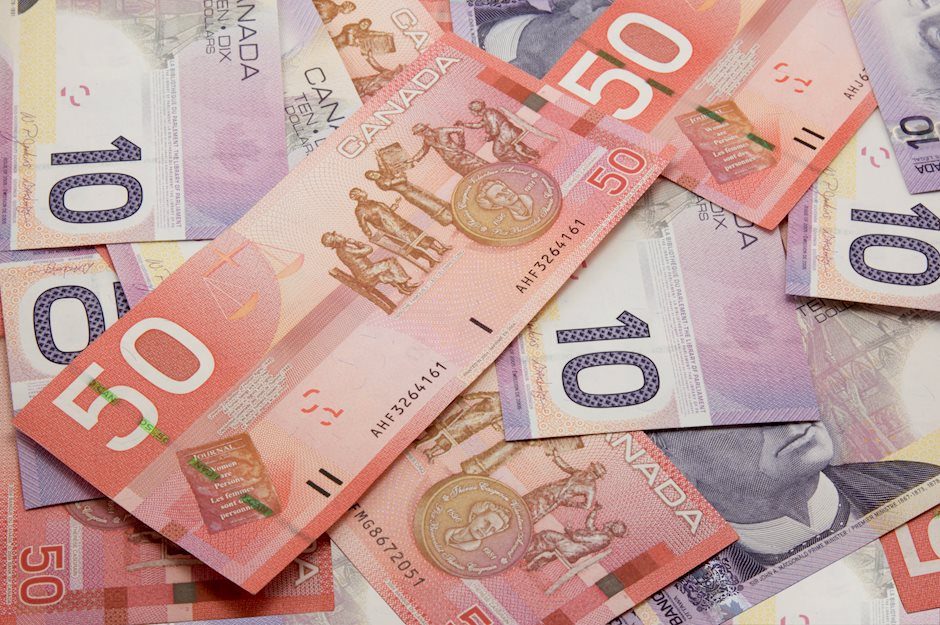USD/CAD drifts higher to near 1.3500 amid geopolitical risks
- USD/CAD trades stronger to around 1.3495 in Wednesday’s early Asian session.
- The US ISM Manufacturing PMI remains unchanged in September.
- Higher crude oil prices provide some support to the Loonie.

The USD/CAD pair trades with mild gains near 1.3495 during the early Asian session on Wednesday. The escalating geopolitical tensions in the Middle East boost the safe-haven currency like the US Dollar (USD).
Data released by the Institute for Supply Management (ISM) on Tuesday showed that the US Manufacturing Purchasing Managers Index (PMI) came in at 47.2 in September versus 47.2 prior, below the market consensus of 47.5. This figure was below the 50% threshold for the sixth consecutive month.
The US Federal Reserve (Fed) Chair, Jerome Powell, stated that more rate cuts are likely as the economy remains on solid ground, yet he cautioned against rapid changes. Atlanta Fed President Raphael Bostic said on Monday that he would be open to another half-percentage-point interest rate cut at the November meeting if upcoming data show job growth slowing faster than expected.
The US ADP Employment Change data will be in the spotlight later on Wednesday. Also, the US Federal Reserve (Fed) Thomas Barkin, Beth Hammack, Alberto Musalem, and Michelle Bowman are set to speak.
On the other hand, crude oil prices rise after Iran launches rockets at Israel in a direct attack, raising fear of supply disruptions in the region. This, in turn, boosts the commodity-linked Canadian Dollar (CAD) against the Greenback. Iran launched over 200 ballistic missiles at Israel on Tuesday. This action was a reprisal after Israel carried out a dramatic series of attacks on Lebanon in recent days, killing Hezbollah leader Hassan Nasrallah in a Beirut airstrike and sending ground forces across the border, per Bloomberg.
(This story was corrected on October 2 at 6:35 GMT to remove Bostic from Fed's speakers on Wednesday.)
Canadian Dollar FAQs
The key factors driving the Canadian Dollar (CAD) are the level of interest rates set by the Bank of Canada (BoC), the price of Oil, Canada’s largest export, the health of its economy, inflation and the Trade Balance, which is the difference between the value of Canada’s exports versus its imports. Other factors include market sentiment – whether investors are taking on more risky assets (risk-on) or seeking safe-havens (risk-off) – with risk-on being CAD-positive. As its largest trading partner, the health of the US economy is also a key factor influencing the Canadian Dollar.
The Bank of Canada (BoC) has a significant influence on the Canadian Dollar by setting the level of interest rates that banks can lend to one another. This influences the level of interest rates for everyone. The main goal of the BoC is to maintain inflation at 1-3% by adjusting interest rates up or down. Relatively higher interest rates tend to be positive for the CAD. The Bank of Canada can also use quantitative easing and tightening to influence credit conditions, with the former CAD-negative and the latter CAD-positive.
The price of Oil is a key factor impacting the value of the Canadian Dollar. Petroleum is Canada’s biggest export, so Oil price tends to have an immediate impact on the CAD value. Generally, if Oil price rises CAD also goes up, as aggregate demand for the currency increases. The opposite is the case if the price of Oil falls. Higher Oil prices also tend to result in a greater likelihood of a positive Trade Balance, which is also supportive of the CAD.
While inflation had always traditionally been thought of as a negative factor for a currency since it lowers the value of money, the opposite has actually been the case in modern times with the relaxation of cross-border capital controls. Higher inflation tends to lead central banks to put up interest rates which attracts more capital inflows from global investors seeking a lucrative place to keep their money. This increases demand for the local currency, which in Canada’s case is the Canadian Dollar.
Macroeconomic data releases gauge the health of the economy and can have an impact on the Canadian Dollar. Indicators such as GDP, Manufacturing and Services PMIs, employment, and consumer sentiment surveys can all influence the direction of the CAD. A strong economy is good for the Canadian Dollar. Not only does it attract more foreign investment but it may encourage the Bank of Canada to put up interest rates, leading to a stronger currency. If economic data is weak, however, the CAD is likely to fall.
Author

Lallalit Srijandorn
FXStreet
Lallalit Srijandorn is a Parisian at heart. She has lived in France since 2019 and now becomes a digital entrepreneur based in Paris and Bangkok.

















